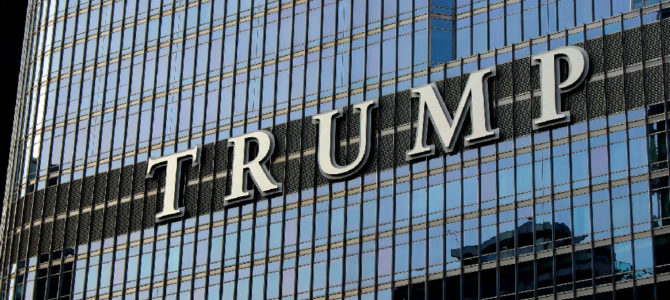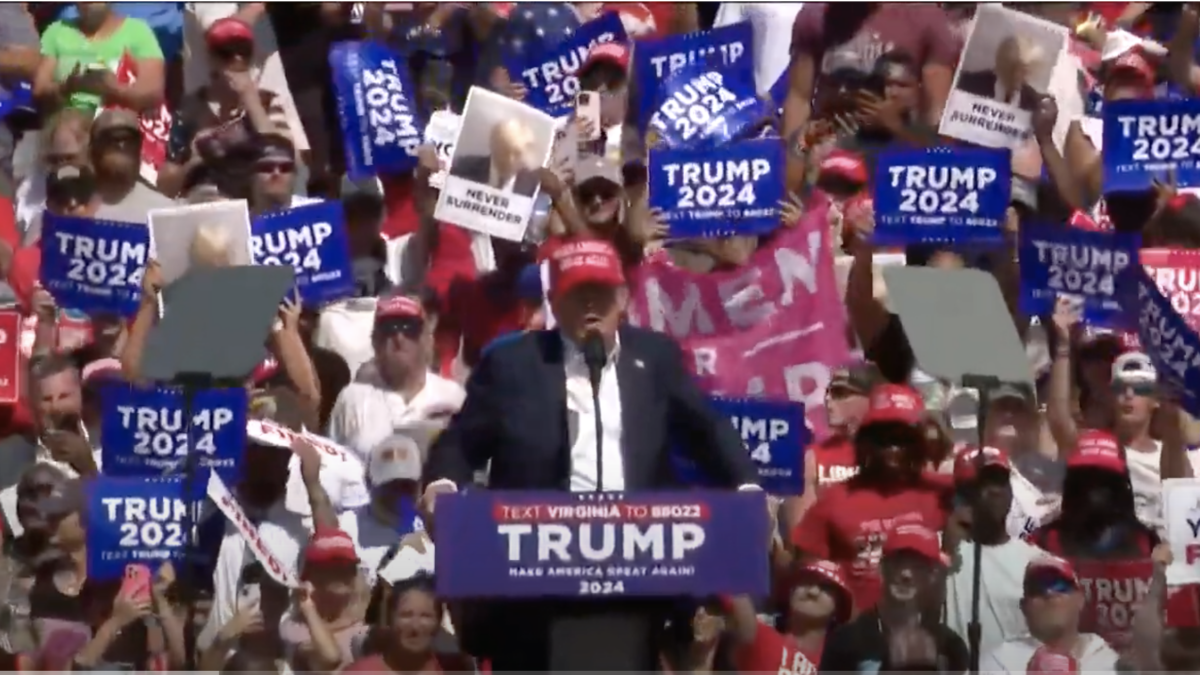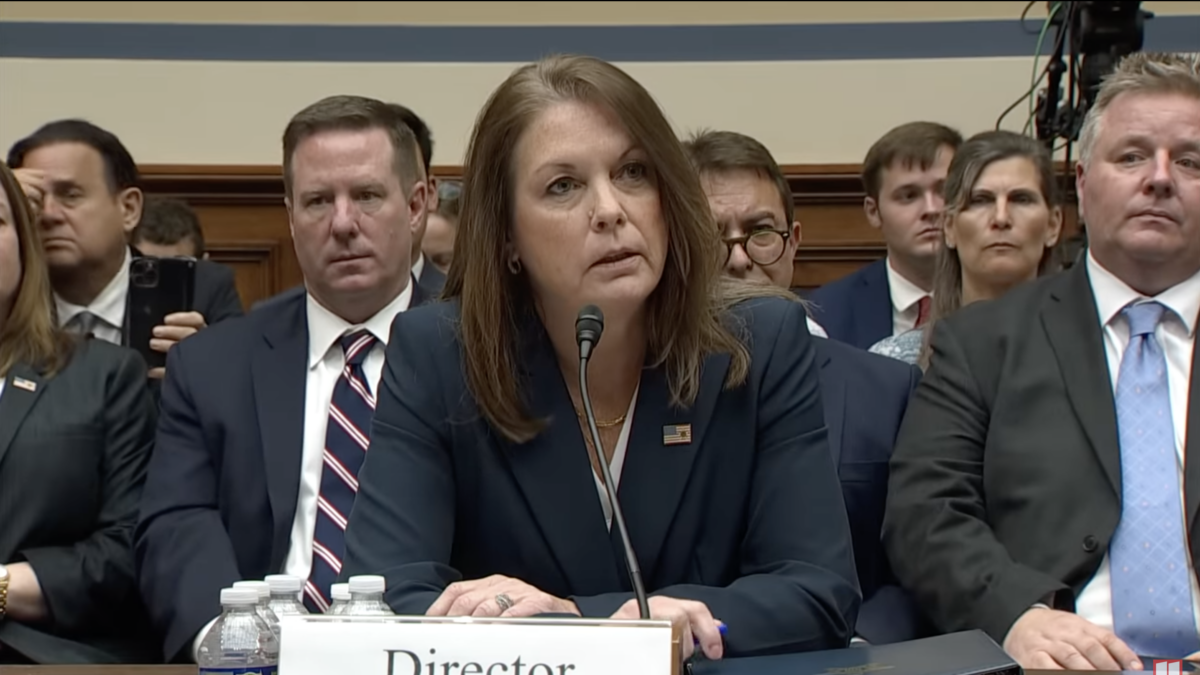
The Left’s assault on the Trump administration is hydra-headed. Some of those heads are strong, and will find plenty of scandal on which to feed. Others are weak, misshapen things that will prove to be nothing but grotesque distractions.
One head of the latter sort snapped at the president this week when the attorneys general of Maryland and Washington DC sued Donald Trump in federal court, claiming that his business dealings violate the Emoluments Clauses of the Constitution.
It’s a vicious bite, but this serpent is destined to break its teeth on the armor of the Political Question doctrine. No matter how much they dislike the president, neither the states nor any other party may short-circuit the impeachment process through the courts. Even if Trump is guilty of violating the Constitution, Congress—not the judiciary—must decide how to punish him.
How Presidents Can Get Paid
The Foreign Emoluments clause is found in Article I of the Constitution. Although the section containing it deals mostly with restrictions on Congress, this part has been read to restrict the behavior of all members of the federal government: “[N]o Person holding any Office of Profit or Trust under [the United States], shall, without the Consent of the Congress, accept of any present, Emolument, Office, or Title, of any kind whatever, from any King, Prince or foreign State.”
That section is written pretty broadly. In a 1993 memo exploring the outer limits of the provision, Assistant Attorney General Walter Dellinger wrote that “the Emoluments Clause was adopted unanimously at the Constitutional Convention, and was intended to protect foreign ministers and other officers of the United States from undue influence and corruption by foreign governments.”
Given the relative weakness and poverty of the eighteenth-century United States compared with the kingdoms of Europe, this was wise decision. In Poland at that time, members of the legislature were routinely bribed by neighboring powers, bringing all legislative activity to a halt and leading to the nation’s partition and destruction, a fate America hoped to avoid.
Maryland and DC also allege that the president violates the Domestic Emoluments Clause, which holds that “The President shall, at stated Times, receive for his Services, a Compensation, which shall neither be increased nor diminished during the Period for which he shall have been elected, and he shall not receive within that Period any other Emolument from the United States, or any of them.” This, as Alexander Hamilton explained in “Federalist Paper No. 73,” is to preserve the president’s independence from Congress and the states by making it impossible for him to become dependent on them for funds.
Shady, Yes. Unconstitutional, No
Today, the clauses still have a purpose, but they are more about avoiding corruption than avoiding foreign domination or coercion by the states. Whatever the purpose, they remain a part of the Constitution and are legitimate restrictions on the president. But the historical practice surrounding these clauses suggests that the plaintiffs will have a hard time making their case.
The plaintiffs’ own brief and its logical kludges make clear that their case is strong on politics but weak on the law. It is true that the property holdings of the Trump Organization (wholly owned by the president) are more extensive than those of any president before him. That will necessarily entail more conflicts of interest. But Trump’s business success was a large part of his appeal. For better or worse, it was part of the reasons he was elected. While it would have been better for propriety’s sake for him to have divested control of his business empire before taking office, not doing so does not necessarily violate the Constitution.
Even the plaintiffs admit that previous presidents have owned some properties that might have resulted in business relationships, including trade with foreign governments. They draw a distinction in that this president has refused to put his property into a blind trust, as previous chief executives have. They are right that this is an aberration. It looks more unseemly than a blind trust would. But looking shady is not a violation of the law—if it were, half the politicians in the country would be behind bars.
Drawing the line at the blind trust is more nebulous than it seems. All a trust does is divide legal ownership (which rests with the trustee) from beneficial ownership (which stays with the beneficiary). In a trust—even a blind trust—the trustee is obliged to act for the benefit of the beneficiary (i.e., the president).
So if President Trump had transferred the entire Trump Organization to a blind trust, the trustees would still be obliged to act in his interests. The hotels would still exist, and foreigners—even those employed by foreign governments—would continue to book rooms there. The exact profits from those arrangements would remain unknown to a blind trust’s beneficiary, but they would accrue to him nonetheless when he left office. If the clauses are interpreted as strictly as the plaintiffs allege, the blind trust would be no better than outright ownership.
The scale of Trump’s business empire gives them plenty of transactions on which to cast aspersions. For example, they suggest that when the Trump Organization leases the Old Post Office building from the federal government for use as a hotel, this constitutes a domestic emolument. It’s a strange sort of payoff that requires Trump’s business to give money to the government, as they do in the lease. Admittedly, he could make a profit on the hotel above what he owes in the lease, but there is no guarantee of that, especially given his history of bad investments. It looks more like an arm’s-length business transaction than a payoff.
It would be more of a problem if Trump got money from the federal government. If the government, say, purchased thousands of copies of his book and gave them away through its embassies, that would constitute money going straight in Trump’s pocket beyond the salary Congress approved. Even in that case, though, the president would be on surer ground, given the precedent of the State Department doing that exact thing with Barack Obama’s first autobiography in 2011. Strangely, no one claimed a Domestic Emoluments Clause violation then.
Courts Can’t Decide Everything
The plaintiffs’ logical incoherence is not the limit of their problems: they are also pushing up against the limits of what cases a court can legally decide. Even if the plaintiffs prove every allegation they put forth, a court can do nothing to achieve the result they wish.
American courts do not just decide every question they are asked; in accordance with the jurisdiction granted them under the Constitution, they do not give advisory opinions or rule on hypotheticals; courts only decide on actual violations of the law in which they could possibly impose some remedy, i.e., cases that are justiciable.
The Political Question doctrine is a subset of justiciability. Courts have recognized there are some problems courts cannot solve because the Constitution delegates the power over these problems to the executive and legislative branches (collectively called the “political branches”). The exact meaning of all this has been the work of centuries, but courts today have a pretty good idea of what it entails.
In Baker v. Carr in 1962, the Supreme Court imposed some definition on the Political Question doctrine. The restrictions most relevant to Trump’s case are that courts should not decide cases where there is a “textually demonstrable constitutional commitment of the issue” to a political branch, or where there is “the impossibility of a court’s undertaking independent resolution without expressing lack of the respect due coordinate branches of government.”
That’s a lot of legal jargon, but it boils down to this: courts should not decide on things that the Constitution leaves to the political branches. They should not take over political processes in a way that shows disrespect to the political branches. Adding in the more general idea of justiciability, this suggests that any reasonable court must dismiss Maryland and DC’s case.
This Is Congress’s Mess to Clean Up
On the first point, presidential misbehavior while in office is very clearly a matter for Congress. The Framers spent a considerable portion of the Constitution’s text detailing the process of impeachment and removal from office. And, as the Supreme Court reiterated in Nixon v. United States in 1993 (that’s Judge Walter L. Nixon, not President Richard M. Nixon) the Senate was the sole trier of impeachment cases. That means the subject of an impeachment cannot appeal to the courts. Logically, it must also mean that a state or citizen cannot jumpstart the impeachment process by getting a court to issue an injunction.
That aside, general concerns of justiciability demand that the case be dismissed. Consider: what would happen if the plaintiffs prove their case and the court agrees that Trump has violated the Emoluments Clauses. Then what? The plaintiffs’ complaint asks the court for an injunction against the president enjoining him from continued violations.
Presumably, the court would in this case direct Trump to sell or give away his assets. What happens if he refuses? What if he keeps them, thumbing his nose at the court, as he would almost certainly do? Then what? If ordinary citizens violate injunctions, the court could fine or jail them. But that would not happen to the president, because Congress is the sole arbiter of his conduct in office. What Maryland and DC are asking the court to do is impossible and can only result in the court’s authority being diminished in the process.
Legislation By Other Means
The plaintiffs surely know this already. None of these precedents or doctrines is obscure. The Washington Post calls the lawsuit “the first of its kind,” and for good reason: everyone who considered such a thing before knew it would not work. Only the intense partisan derangement of recent days would lead otherwise reputable attorneys to file a suit so obviously at odds with law and precedent.
While the suit is unique, it fits a decades-old trend of the Left using the courts to achieve by lawsuit what they could not accomplish at the ballot box. Ever since the end of the New Deal, the Left has found that the American people have little appetite for creeping socialism. Beginning in the 1950s, through such ruses as the “living Constitution,” they sought to advance their agenda through judicial fiat. Instead of convincing the electorate, they needed only persuade one court.
Many questions now decided in courtrooms would have been instantly dismissed by judges in years past. While lawyers deserve some of the blame for this, the real fault lies with political partisans, especially on the Left, who see the courts as just another political arena. Their postmodern view of courts is about partisan struggle, not the abstract rule of law, which they do not even believe exists.
This case, like many before it, is about political power. It is not a lawsuit; it is political impeachment by other means. It brings to mind Justice Antonin Scalia’s dissent in Morrison v. Olsen, another case involving the powers of the different branches of government.
That is what this suit is about. Power. The allocation of power among Congress, the President, and the courts in such fashion as to preserve the equilibrium the Constitution sought to establish…. Frequently an issue of this sort will come before the Court clad, so to speak, in sheep’s clothing: the potential of the asserted principle to effect important change in the equilibrium of power is not immediately evident, and must be discerned by a careful and perceptive analysis. But this wolf comes as a wolf.
Maryland and DC’s case must fail, either in district court or on appeal. It must do so because it seeks to use the plaintiff’s private political complaints to build a back door to impeachment. They want to take the power of impeachment away from Congress and place it in the hands of whichever district court they choose for their suit.
As in Morrison, this wolf comes as a wolf. The desire for triumph over a political enemy is transparent and has nothing to do with the law. Trump’s actions are by no means perfect—not even close—but that is for Congress, and ultimately the people, to decide. If the courts allow this suit to go forward, they will be elevating blind partisan rage over the Constitution.









